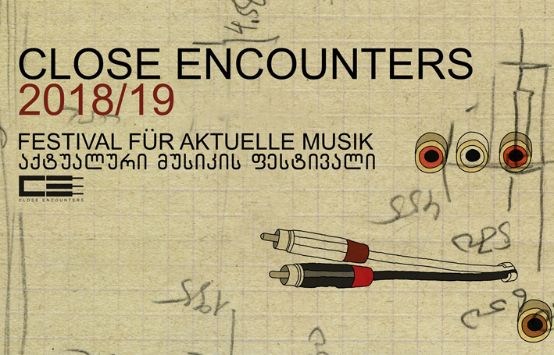Between Tbilisi and Zurich
The Close Encounters festival, which brings together contemporary music from Switzerland and Georgia, took place for the sixth time. It is a success story.

Young world stars of the classical music scene come from Georgia; Georgian Gija Kantscheli was one of the most acclaimed contemporary composers after Glasnost, also thanks to Luigi Nono's support and his CDs on ECM. The country's musical tradition is respectable, and the Tbilisi Conservatory, founded in 1917 and long influenced by the Soviet Union, is the oldest in the region. It is therefore surprising that the first Georgian ensemble for contemporary music was only founded two years ago. Georgia Modern" recently performed in Zurich at the "Close Encounters" festival, presenting music that somehow conforms to the cliché of neo-tonal, expansive, Eastern European soundscapes - and yet does not. The mixture makes you sit up and take notice. The younger composers Demetre Gamsakhurdia and Giorgi Papiashvili move in a stylistic no-man's land, far removed from formulas.
Friendly encounters
The concert was also a testament to the quality of the musicians. Composer Reso Kiknadze, who has also been the rector of the Tbilisi University of Music since 2012, emphasized in an interview how important the founding of this ensemble was. However, he also emphasized how much the festival had helped him over the years. The contact is important. However, whether it was an "uncanny encounter of the third kind", as the title of Steven Spielberg's film Close Encounters is translated in each case? If it is an encounter with the alien, even if not extraterrestrial, then - as the Spielberg association suggests - it is a positive one, not one of fear and horror, but one of inspiration and broadening horizons. The Swiss-Georgian festival was founded in 2005 by Tamrika Kordzaia and the composer Felix Profos. The pianist, who herself came to Switzerland from Georgia in 1997, still directs it today and has opened it up stylistically. This "festival for contemporary music" offers not only avant-garde, but also a broad spectrum that includes club concerts, for example, and seeks encounters beyond the musical. This time, Kordzaia invited the Swiss architect Peter Zumthor.
Not only is music from the two countries exchanged, the musicians and music institutions also meet each other. This is enriching for both sides. Kiknadze, who previously worked at the Lübeck University of Music, mainly in the field of electronic music, says that musical life in Tbilisi is very lively and almost more exciting than in Germany. In fact, new things are often still new there. There is a curiosity for experimentation - and an audience. Although the Kunstraum Walcheturm was quite full at the Georgia Modern concert, the ensemble fills larger halls in Tbilisi, albeit not the really big ones. Kordzaia says that a lot of younger people in particular come to the concert.
Enriching mix of styles
Stylistically, this cannot be narrowed down. Alexandre Kordzaia, for example, who now lives in The Hague and Tbilisi, composes works for classical ensembles, but also mixes pop songs. At the festival, he performed on grand piano and electronics with percussionist Peter Conradin Zumthor - in the joint project "SHWUIIT", which also contains freely improvised passages.
The Mondrian Ensemble in turn performed together with composer Natalia Beridze, who also performs as Tusia or T.B.. She is self-taught and mainly produces electronic music. Mapping Debris is the title of her piece for piano quartet and electronics, which is based on sound and vocal samples that, according to the program booklet, "lay unused on the composer's hard disc. These scraps of sound resemble the wreckage of a crashed airplane, in which it is difficult to recognize a complex structure and which only make sense when they are analytically reassembled." The music doesn't seem like debris at all, but rather well-ordered, but the composition is indeed unusual: calm string gestures, heterogeneous sound fields, pop sprinkles and noise fragments. The mix doesn't seem to me to be genuinely Georgian, but rather stems from a trend that began decades ago in the USA, for example with the Kronos Quartet. But the result is a peculiar kind of music that keeps you occupied afterwards.
Electronic music has a special status in Georgia. This is also due to Reso Kiknadze, who strongly promotes this already older development. As rector of the venerable conservatory, he has not only established the subject of jazz, but also a course in music technology. It is the only school in the entire Caucasus region to offer such a course, and so students from neighboring countries, such as Iran, also come to Tbilisi. This enriches the scene and continues to have an impact.
http://www.closeencounters-festival.ch
The concert from Moods Zurich on February 3, 2019 is available on YouTube.








